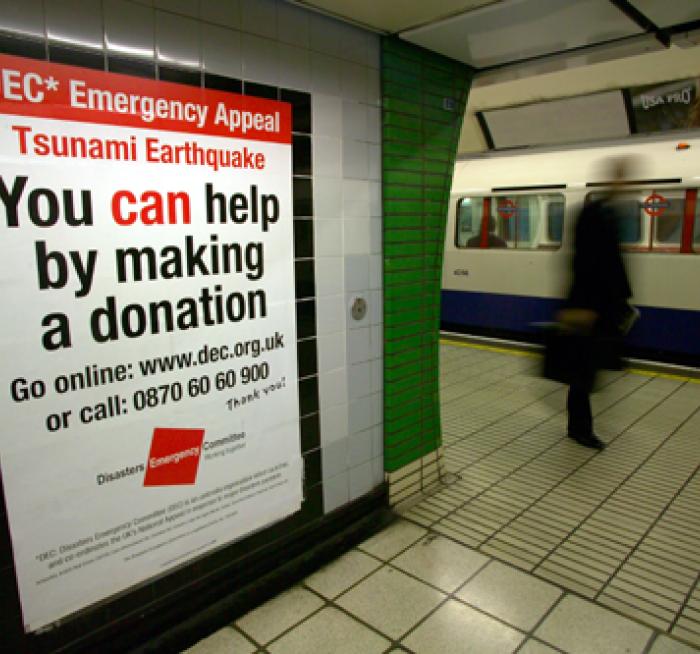

Boxing Day Tsunami
20 years on
Boxing Day Tsunami
20 years on
One of the worst natural disasters in modern times

227,000
people killed across 14 countries

1.7 million
people displaced from their homes
The last 20 years of humanitarian response
Boxing Day Tsunami Appeal

26 December 2004
A massive earthquake off the coast of Sumatra, Indonesia, triggers a 500mph tsunami which hits seven countries in the Indian Ocean. Hundreds of thousands of people are killed and millions of lives shattered. The DEC launches what was to become its biggest ever appeal.
The impact of the UK public's donations are still felt today, with many working in jobs, living in houses and studying in classrooms funded by the DEC appeal.
It also had a huge impact on humanitarian responses, highlighting a need for better disaster preparedness and putting affected communities at the heart of disaster responses.
Amount raised:
£392 million
The impact of the UK public's donations are still felt today, with many working in jobs, living in houses and studying in classrooms funded by the DEC appeal.
It also had a huge impact on humanitarian responses, highlighting a need for better disaster preparedness and putting affected communities at the heart of disaster responses.
Cluster System Introduced
2005
A lack of coordination between governments, NGOs, international organisations, and UN agencies has a major effect on the effectiveness of the aid response. As a direct result the Cluster Approach is formally rolled out by the UN.
The system, now used by all DEC charities, brings organisations working in different areas (eg health, water, shelter) together to share responsibility and learn from each other’s work. It means no single agency is responsible for an entire aspect of the response, making it more robust. Each cluster group meets regularly to discuss progress, issues, and make necessary changes.
The system, now used by all DEC charities, brings organisations working in different areas (eg health, water, shelter) together to share responsibility and learn from each other’s work. It means no single agency is responsible for an entire aspect of the response, making it more robust. Each cluster group meets regularly to discuss progress, issues, and make necessary changes.
Tsunami Evaluation Coalition report
2006
An independent report is published to help improve the quality of humanitarian action. The results of the report have continued to change and influence the humanitarian sector since.
The report's three aims are: learning lessons from the international response to the tsunami to improve humanitarian action; being accountable to both donors and affected communities for the overall response; and testing the TEC approach as a possible model for future joint collaborative humanitarian responses.
The report's three aims are: learning lessons from the international response to the tsunami to improve humanitarian action; being accountable to both donors and affected communities for the overall response; and testing the TEC approach as a possible model for future joint collaborative humanitarian responses.
Philippines Typhoon Appeal

Wreckage caused by Typhoon Haiyan in the Philippines
November 2013
Typhoon Haiyan, one of the fiercest typhoons ever to make landfall, rips through the centre of the Philippines archipelago causing devastation.
Lessons learned from the tsunami response lead to the introduction of formal mechanisms for accountability to affected populations.
DEC funds support local radio stations to share critical and timely information with affected communities in their own languages.
Amount raised:
£96 million
Read more
Lessons learned from the tsunami response lead to the introduction of formal mechanisms for accountability to affected populations.
DEC funds support local radio stations to share critical and timely information with affected communities in their own languages.
Core Humanitarian Standard established
2014
The evaluation report from the response to the tsunami pointed out inconsistencies in the quality of humanitarian work across different regions and sectors. It recommended establishing a certification and accreditation system for international humanitarian aid actors.
In 2014, the Core Humanitarian Standard is set up to provide a mechanism for organisations to align their practices with recognised quality benchmarks. The CHS sets out nine commitments to ensure that organisations support people and communities affected by humanitarian crises in ways that respect their rights and dignity.
Read more
In 2014, the Core Humanitarian Standard is set up to provide a mechanism for organisations to align their practices with recognised quality benchmarks. The CHS sets out nine commitments to ensure that organisations support people and communities affected by humanitarian crises in ways that respect their rights and dignity.
Coronavirus Appeal

Bushra* wears a mask provided by DEC charity Islamic Relief.
July 2020
The coronavirus pandemic is particularly devastating for those already vulnerable in communities around the world. The DEC launches an appeal to provide medical care, clean water and other aid in eight countries - Afghanistan, Bangladesh, DR Congo, India, Somalia, South Sudan, Syria and Yemen.
The DEC’s response to the pandemic is an example of the importance of localisation, something that became a key to humanitarian response following the Boxing Day tsunami.
Where access into heavily affected areas is complex and spread across multiple countries, like during the outbreak of an infectious disease like coronavirus, it is key that charities work with local agencies and communities.
Amount raised:
£62 million
Read more
The DEC’s response to the pandemic is an example of the importance of localisation, something that became a key to humanitarian response following the Boxing Day tsunami.
Where access into heavily affected areas is complex and spread across multiple countries, like during the outbreak of an infectious disease like coronavirus, it is key that charities work with local agencies and communities.
Afghanistan Crisis Appeal

Kareem, aged 42, receives humanitarian aid at a distribution in Herat.
December 2021
In late 2021 the DEC launches the Afghanistan Crisis Appeal after drought, economic collapse and rising global food prices push millions to the brink of famine.
Lessons learned from the tsunami response lead to the introduction of formal mechanisms for accountability to affected populations.
Surveys are used as real time reviews to help improve aid delivery and make sure that responses are adapted when the context and needs on the ground change.
Amount raised:
£50 million
Read more
Lessons learned from the tsunami response lead to the introduction of formal mechanisms for accountability to affected populations.
Surveys are used as real time reviews to help improve aid delivery and make sure that responses are adapted when the context and needs on the ground change.
Ukraine Humanitarian Appeal

Viktoria, a cyclist volunteer delivers food to Larysa, an older resident of Kharkiv.
March 2022
The Ukraine Humanitarian Appeal was the DEC’s largest since the Boxing Day tsunami.
During the DEC’s response in Ukraine and neighbouring countries, between March 2022 to February 2024, 37% of funds were spent on cash programming.
The humanitarian response to the tsunami marked one of the first instances of agencies using cash support. Today cash is a well established mechanism for support, recognised as one of the most effective ways to respond to humanitarian crises.
Amount raised:
£440 million
Read more
During the DEC’s response in Ukraine and neighbouring countries, between March 2022 to February 2024, 37% of funds were spent on cash programming.
The humanitarian response to the tsunami marked one of the first instances of agencies using cash support. Today cash is a well established mechanism for support, recognised as one of the most effective ways to respond to humanitarian crises.

Image credit: World Vision, 2014
An incredible response
The DEC has never witnessed as generous a response from the UK public as it did for the Tsunami Earthquake Appeal in 2004. With the incredible amounds raised, DEC charities were able to deliver urgent aid in Indonesia, India, Myanmar, the Maldives, Sri Lanka, Somalia and Thailand as well as help communities rebuild after the disaster.
The majority of funds were used for building long-term shelter for survivors including 13,700 homes in Aceh, Indonesia, the worst impacted area. People were helped to restore their livelihoods through fishing, farming and small businesses, and DEC charities worked with local partners to provide clean water and healthcare, whilst building community resilience to prepare for future disasters.

Image credit: World Vision, 2024
Darmawati's story
Darmawati is a schoolteacher from Banda Aceh, Indonesia, one of the worst affected areas.
"The tsunami destroyed this school, everything was destroyed... four teachers passed away."
DEC charity World Vision helped rebuild the school and provide training for new teachers. A week after tsunami, Darmawati was already back to teaching her surviving pupils, although it took nearly two years for the school to become fully operational again.
"The number of students enrolled gradually increased. World Vision provided us books, equipment, all school supplies, including school uniforms."
Now the school has regained its title as the favourite school in town.





















